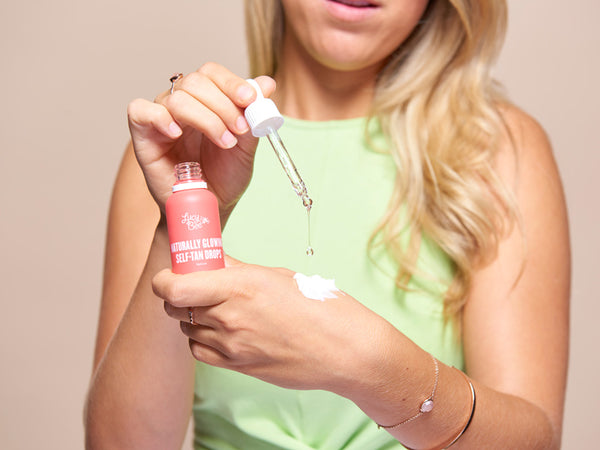Whether you are using a physical or chemical exfoliant, these tips will help you get the most out of your tan for both your face and body.

Before Tanning
It is best to exfoliate the day before you tan. This allows dead skin cells to be buffed away, leaving the skin smooth and soft, allowing the tan to absorb better and to leave a more even, long lasting tan.
Allowing up to 24 hours between exfoliating and tanning means that if there are any oils in your physical exfoliator they will have been absorbed. This allows your tan to perform better, as oils can interfere with how well it is absorbed. It also ensures if using a chemical exfoliator that dead skin cells have been unglued from the new skin cells and removed.

Tip: avoid over-exfoliating your skin as this may cause the skin to become sore and irritated and can impact how your tan applies.
After Tanning

Keep your sun-kissed glow even as it starts to come off and avoid patchy fading by gently exfoliating 3-4 days after you have applied your tan. This will help to remove any dead skin cells and keep your tan more even. Skin cell renewal on your face is faster than your body, so you may find your tan fades more on your face than your body, this may mean you might want to use your exfoliant 2-3 days after tanning.

Want to top up your colour? Add a couple of Lucy Bee Naturally Glowing Self-Tan Drops to your moisturiser and apply. Or alternatively, prep your skin for another tanning pamper session with our Naturally Glowing Self-Tan Mousse. To find out how to prep your skin for tanning click here, or watch Lucy's video here.

About Lucy Bee
Lucy Bee is a lifestyle brand selling food, skincare and soap products all completely free from palm oil and with minimal use of plastic. Lucy Bee is concerned with Fair Trade, organic, ethical and sustainable living, recycling and empowering people to make informed choices and select quality, natural products for their food and their skin.
Any information provided by us is not intended to diagnose, treat, cure or prevent disease. We always recommend referring your health queries to a qualified medical practitioner.

